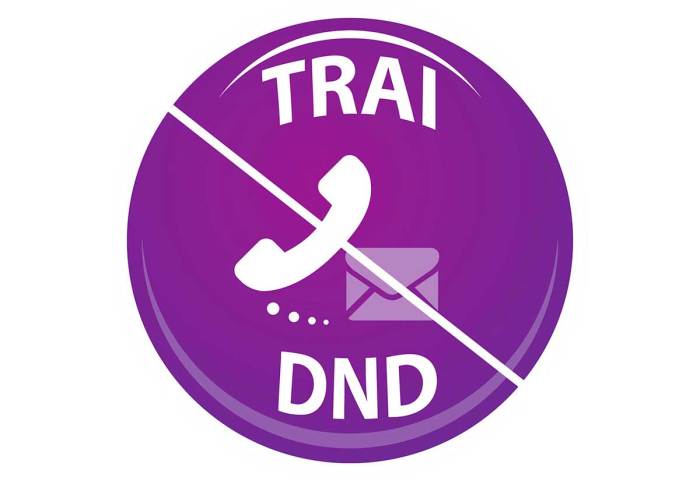Apple’s Anti-Spam App in India
India is facing a growing epidemic of spam and unsolicited messages, with users bombarded by unwanted calls, texts, and emails. This issue has become a significant concern for both individuals and businesses, impacting productivity, privacy, and even financial security.
The Indian Government’s Efforts to Combat Spam
The Indian government has taken a proactive approach to address the spam problem and protect user privacy. Here are some key initiatives:
- The Telecom Regulatory Authority of India (TRAI) has implemented regulations to curb unsolicited commercial communications (UCC), including measures to prevent spam calls and messages.
- The Information Technology (Intermediary Guidelines and Digital Media Ethics Code) Rules, 2021, introduced stringent requirements for social media platforms and messaging apps to prevent the spread of spam and misinformation.
- The Indian government has also launched public awareness campaigns to educate users about identifying and reporting spam.
Apple’s Previous Stance on Anti-Spam Measures
Apple has historically taken a cautious approach to anti-spam measures on its iOS platform. While the company has offered features like “Do Not Disturb” and “Silence Unknown Callers,” it has generally relied on user-driven solutions rather than implementing aggressive anti-spam filters.
Apple’s approach has been based on the belief that users should have control over their communication preferences, and that overly aggressive spam filtering could potentially block legitimate messages.
Apple’s Decision to Comply with India’s Demand
Apple’s decision to introduce an anti-spam app in India was a strategic move influenced by a combination of factors. The Indian government’s increasing focus on digital security and consumer protection played a significant role. The growing prevalence of spam calls and messages in India, impacting millions of users, also contributed to Apple’s decision.
Impact on Apple’s User Base in India
The introduction of the anti-spam app is expected to have a positive impact on Apple’s user base in India. By addressing a major pain point for users, Apple can enhance the user experience and strengthen its position in the Indian market. The app’s effectiveness in reducing spam will likely lead to increased user satisfaction and loyalty. Additionally, this move demonstrates Apple’s commitment to the Indian market, further solidifying its reputation as a responsible and responsive technology company.
Features and Functionalities of the Anti-Spam App
The anti-spam app developed by Apple incorporates several key features designed to effectively combat spam calls and messages.
- Call and Message Filtering: The app uses advanced algorithms to identify and block spam calls and messages, preventing them from reaching the user’s device.
- Real-time Detection: The app utilizes machine learning and artificial intelligence to constantly learn and adapt to new spam patterns, ensuring that it can effectively identify and block emerging spam threats.
- User Reporting: Users can report suspected spam calls or messages directly through the app, contributing to the app’s ongoing improvement and enhancing its ability to detect spam.
- Transparency and Control: The app provides users with transparency into its operations, allowing them to see which calls and messages have been blocked and to customize their spam filtering preferences.
The Anti-Spam App: Apple Gives In Indias Demand Anti Spam App
Apple’s anti-spam app for India is a significant step towards addressing the growing issue of spam messages. This app is designed to protect users from unwanted and potentially harmful messages, enhancing their overall mobile experience.
Implementation and Functionality
The anti-spam app will be seamlessly integrated into iOS devices, working behind the scenes to filter out spam messages. Users will not need to download or install any additional software. This integration is achieved through a combination of techniques:
* Real-time Analysis: The app continuously analyzes incoming messages for suspicious patterns, including s, sender details, and message content.
* Machine Learning: The app utilizes machine learning algorithms to identify spam messages based on patterns and trends observed in previously flagged messages.
* User Feedback: Users can report spam messages directly through the app, contributing to the app’s learning process and improving its accuracy over time.
Spam Message Identification and Filtering
The app uses a multi-layered approach to identify and filter spam messages effectively. Here are some examples of spam messages that the app can effectively block:
* Promotional messages: Unsolicited advertisements, offers, or deals from unknown senders.
* Phishing attempts: Messages that attempt to trick users into revealing personal information, such as bank account details or passwords.
* Scam messages: Messages that claim to offer unrealistic rewards or benefits, often involving a request for personal information or money.
* Malicious links: Messages containing links that redirect users to harmful websites or download malicious software.
* Fake contests and giveaways: Messages promoting fake contests or giveaways to lure users into providing personal information.
Implications for Users and the Mobile Ecosystem
Apple’s decision to introduce an anti-spam app in India holds significant implications for both users and the broader mobile ecosystem. The app promises to offer a much-needed solution to the rampant problem of spam calls and messages, but its impact extends beyond individual user experiences, potentially shaping the future of mobile communication in the country.
Potential Benefits for Users
The anti-spam app is expected to provide numerous benefits for Indian users. By filtering out unwanted calls and messages, the app can significantly improve user experience and reduce the annoyance and inconvenience caused by spam.
- Reduced Spam Exposure: The app will effectively block spam calls and messages, shielding users from unwanted intrusions and potentially malicious content.
- Improved Privacy and Security: By filtering out spam, the app can help protect users from scams, phishing attempts, and other security threats often disguised as legitimate communication.
- Enhanced Productivity and Efficiency: Users will experience reduced distractions from spam, allowing them to focus on important calls and messages, improving their productivity and efficiency.
- Increased Peace of Mind: Users can enjoy a more peaceful and less stressful mobile experience, knowing that they are protected from unwanted spam.
Impact on the Mobile Ecosystem
The introduction of Apple’s anti-spam app in India is likely to have a significant impact on the mobile ecosystem.
- Reduced Revenue for Spammers: The app will make it more difficult for spammers to reach their targets, potentially reducing their revenue and discouraging their activities.
- Increased Trust in Mobile Communication: By effectively tackling spam, the app can help restore user trust in mobile communication, promoting a more positive and secure environment for all.
- Innovation in Spam Detection Technologies: The app’s success could encourage the development of more advanced and sophisticated spam detection technologies, further enhancing user experience and security.
- Pressure on Other Players: Apple’s initiative may pressure other mobile operating systems and service providers to implement similar anti-spam measures, leading to a broader ecosystem-wide effort to combat spam.
Potential Challenges and Limitations
While the anti-spam app offers significant potential benefits, it also faces certain challenges and limitations.
- Effectiveness of Spam Detection: The app’s effectiveness will depend on the accuracy of its spam detection algorithms, which may struggle to identify sophisticated spam tactics.
- False Positives: There is a risk of false positives, where legitimate calls or messages are mistakenly classified as spam, leading to user inconvenience.
- Evolving Spam Tactics: Spammers are constantly evolving their tactics, making it challenging for any anti-spam app to stay ahead of the curve and effectively block all spam.
- User Adoption and Awareness: The app’s success will depend on user adoption and awareness. Users need to be informed about the app’s features and benefits to maximize its impact.
Apple’s Approach to Privacy and User Data
Apple’s commitment to user privacy is a cornerstone of its brand identity, and this commitment extends to its anti-spam app in India. While the app is designed to combat spam and protect users, Apple emphasizes that it does so without compromising user privacy.
Data Security and Transparency, Apple gives in indias demand anti spam app
Apple’s anti-spam app operates with a focus on data security and transparency. The app primarily relies on analyzing spam patterns and characteristics, such as sender addresses, message content, and call frequencies. Apple emphasizes that it does not collect or store user data like personal contacts, call logs, or message content. This approach ensures that user privacy remains protected while effectively combating spam.
The Future of Anti-Spam Measures in India
India’s proactive stance against spam, exemplified by the recent demand for an anti-spam app from Apple, signifies a broader shift towards a more secure and user-friendly digital landscape. This move, coupled with existing regulatory frameworks and technological advancements, sets the stage for a future where spam is increasingly mitigated, leading to a more positive user experience.
The Role of Technology Companies and Government Agencies
The effectiveness of anti-spam measures relies on the collaborative efforts of both technology companies and government agencies. Technology companies, like Apple, are crucial in developing and implementing anti-spam solutions within their platforms. This includes features like spam detection algorithms, user reporting mechanisms, and data analysis tools. On the other hand, government agencies play a vital role in setting regulatory frameworks, enforcing compliance, and collaborating with technology companies to ensure effective anti-spam measures.
- Government Regulations: India’s existing regulatory frameworks, such as the Information Technology Act, 2000, provide a legal foundation for combating spam. These regulations are likely to evolve to address the complexities of modern spam, including spam originating from social media platforms and messaging apps.
- Industry Collaboration: Collaboration between government agencies and technology companies is crucial to ensure that anti-spam measures are effective and consistent across platforms. This includes sharing information, best practices, and developing joint initiatives to combat spam.
- Public Awareness: Educating the public about spam and its risks is essential for empowering users to protect themselves. Government agencies and technology companies can work together to raise awareness through campaigns, educational materials, and user guides.
Implications for Digital Security and User Experience
The future of anti-spam measures in India holds significant implications for digital security and user experience. Effective anti-spam measures contribute to a safer online environment by reducing the spread of malicious content, phishing attempts, and scams. This, in turn, enhances user trust and confidence in the digital ecosystem.
- Reduced Exposure to Malicious Content: By filtering out spam, users are less likely to encounter malicious content, such as phishing links, malware, and scams, which can compromise their devices and personal information.
- Improved User Experience: A spam-free digital environment allows users to focus on relevant and legitimate communication, leading to a more enjoyable and productive online experience.
- Enhanced Trust in Digital Services: By demonstrating a commitment to combating spam, technology companies and government agencies can build trust among users, leading to greater adoption and engagement with digital services.
Apple gives in indias demand anti spam app – Apple’s decision to comply with India’s demand for an anti-spam app signifies a growing awareness of the need for digital security and user privacy. This move sets a precedent for other tech giants operating in India and could potentially pave the way for a more regulated digital landscape. While the effectiveness of the app remains to be seen, its introduction is a step in the right direction, demonstrating Apple’s commitment to addressing user concerns and upholding ethical practices in the digital realm.
Apple caving to India’s demands for an anti-spam app is a big deal, showing how tech giants are increasingly responsive to local regulations. This kind of move is reminiscent of the buzz around the Tissot smartwatch prototype unveiled at Baselworld 2015, which was a big deal for the Swiss watchmaker. Both events showcase how tech is evolving to meet specific market needs, and in India’s case, it’s a clear sign of their growing influence in the global tech landscape.
 Standi Techno News
Standi Techno News

